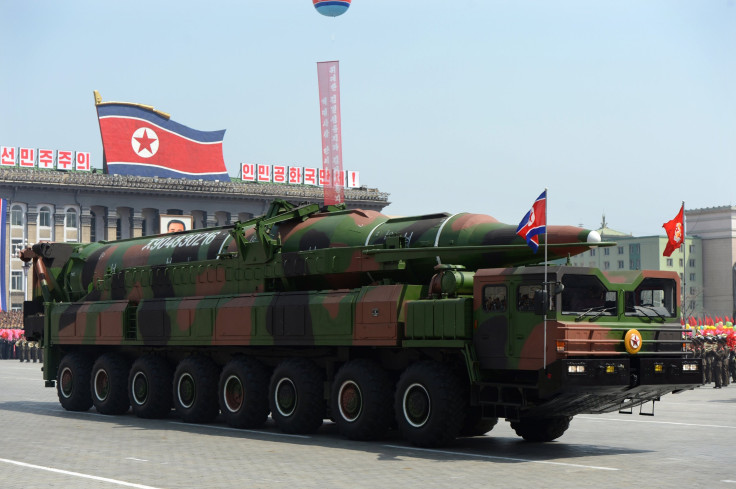Kim Jong Un Follows Up On H-Bomb Test With Calls To Boost Military Power, US Troops On Highest Alert

North Korean leader Kim Jong Un urged scientists to boost the country’s military power after the regime said it successfully tested its first hydrogen bomb, state media reported Monday. Meanwhile, U.S. forces in South Korea were put on their highest level of alert Monday in case of any provocation from Pyongyang.
Kim met scientists in the North Korean capital who developed the apparent hydrogen bomb and told them that it was his “expectation and conviction” that they would boost the country’s weaponry, the Korean Central News Agency reported.
Also on Monday, a United States Forces Korea official told Reuters that Curtis Scaparrotti, Commander, U.N. Command/Combined Forces Command/USFK ordered the troops to be on their highest level of alert during a visit to the Osan Air Base in Gyeonggi Province, operated jointly by the U.S. and South Korea. The alert comes a day after South Korea and the U.S said that the U.S. B-52 bomber arrived in the skies over Osan at noon. The bomber flew past Osan surrounded by an entourage of two South Korean F-15Ks and two U.S. F-16s, and then returned to America’s base on the Pacific island of Guam. The flight was "in response to recent provocative action by North Korea," the U.S. military said.
North Korea had warned the U.S. and its allies Friday that their reaction could lead to a war. "Jealous of the successful test of our first H-bomb, the U.S. and its followers are driving the situation to the brink of war, by saying they have resumed psychological broadcasts and brought in strategic bombers," Kim Ki Nam, head of the ruling Workers' Party propaganda department, said at a rally.
Also on Friday, Seoul resumed loudspeaker broadcasts following a five-month hiatus in retaliation for North Korea’s announcement Wednesday that it conducted its fourth nuclear test. The broadcasts across the border included news reports and pop music, most of which challenged the North Korean government.
The apparent testing of the H-bomb has triggered threats of fresh sanctions against North Korea. Diplomats at the United Nations Security Council also pledged Friday to pursue additional sanctions against the reclusive nation.
© Copyright IBTimes 2024. All rights reserved.






















